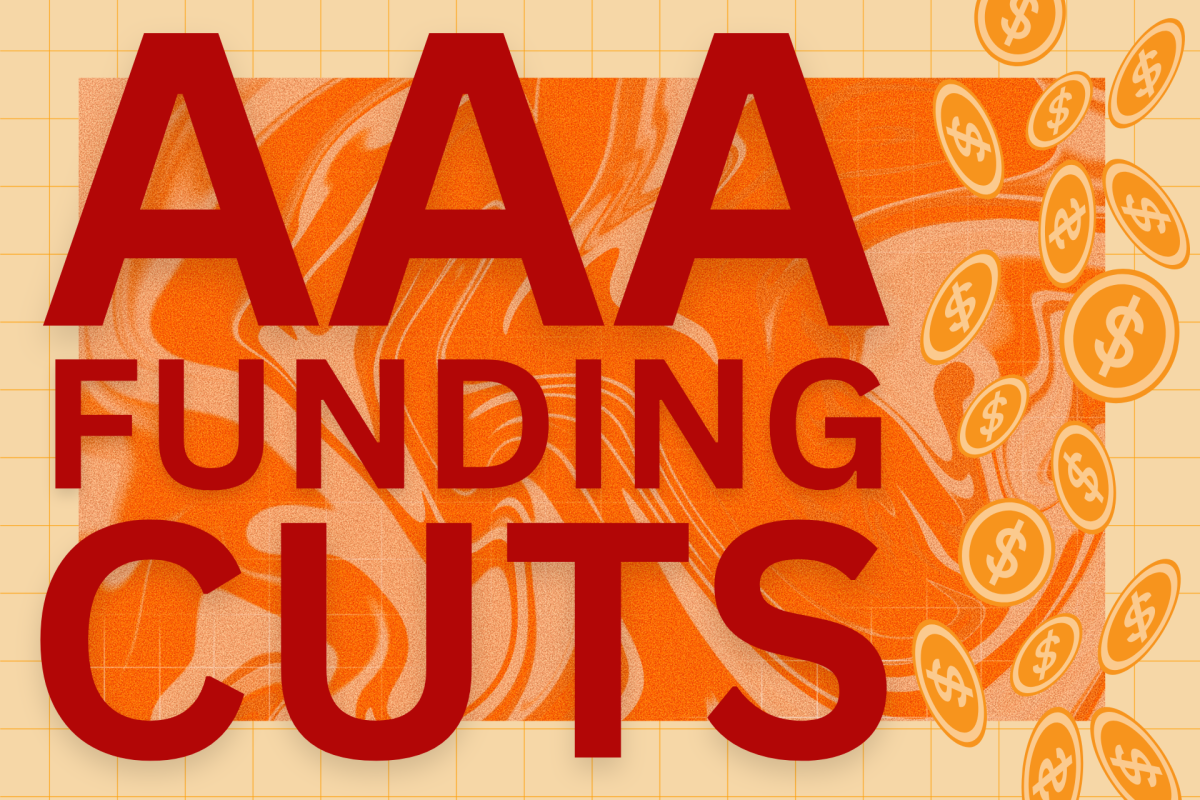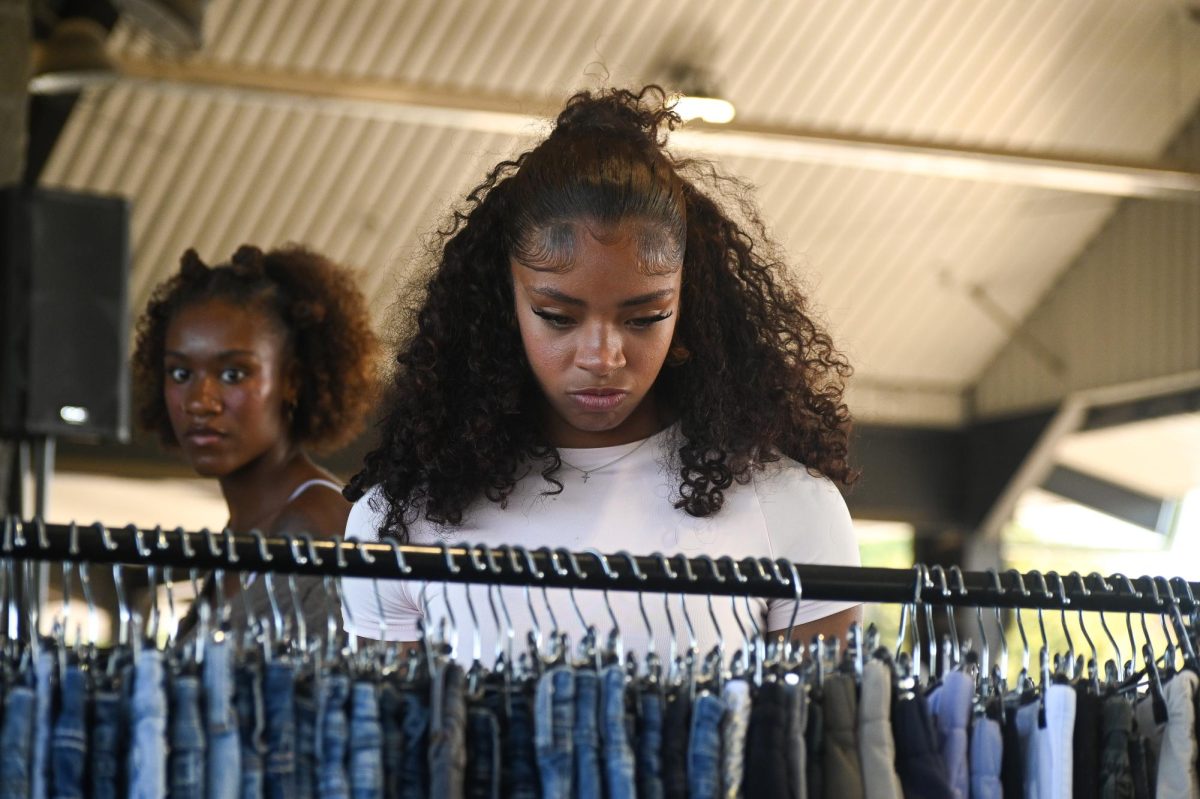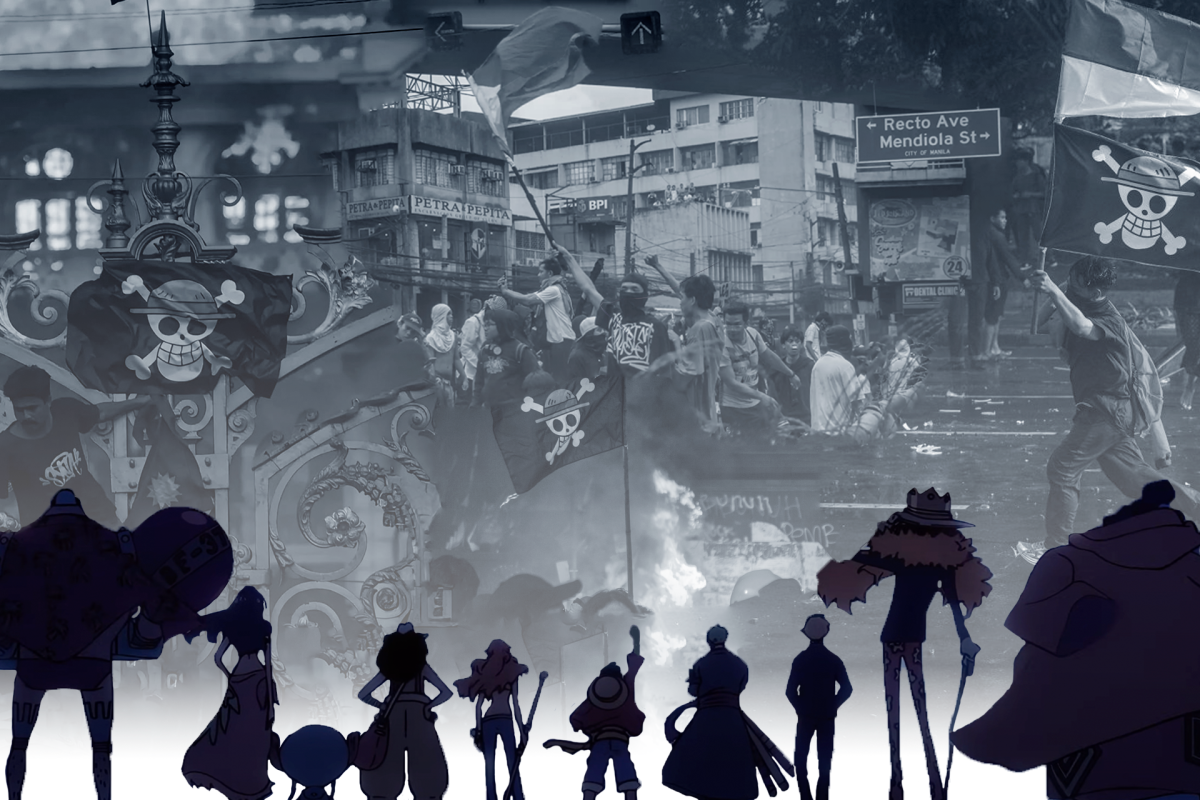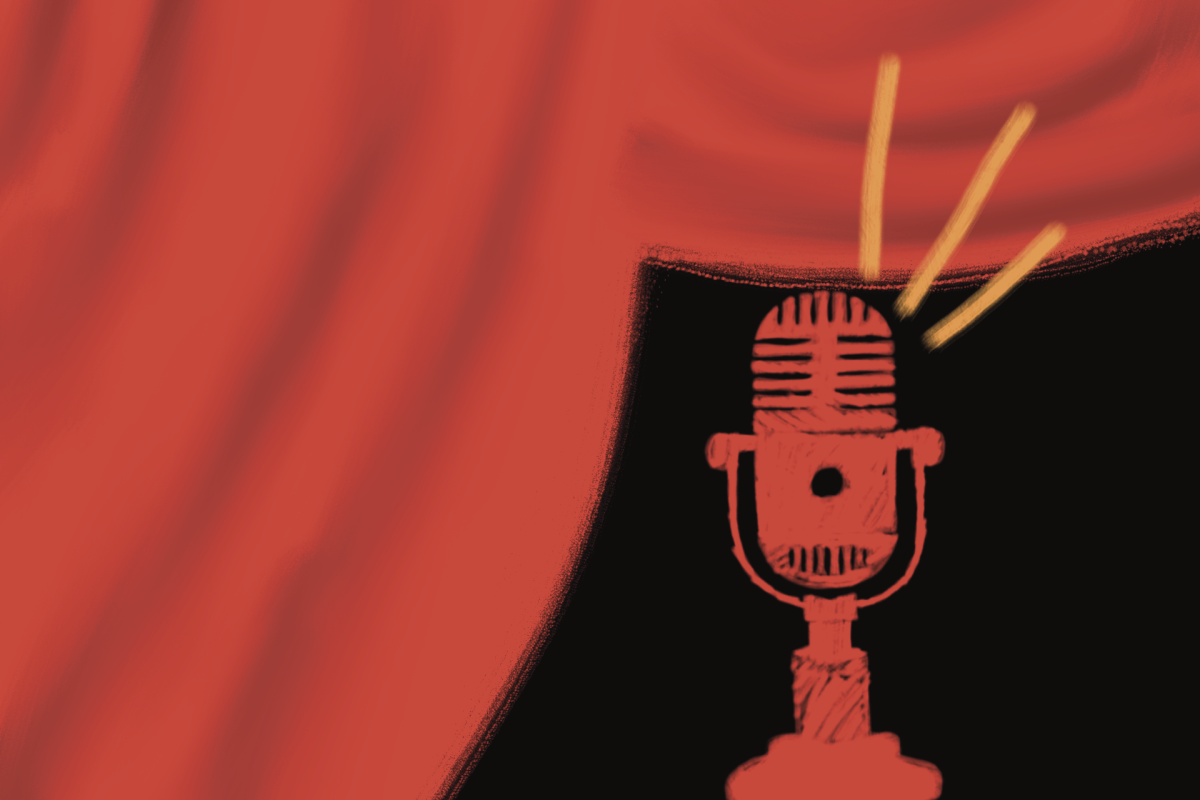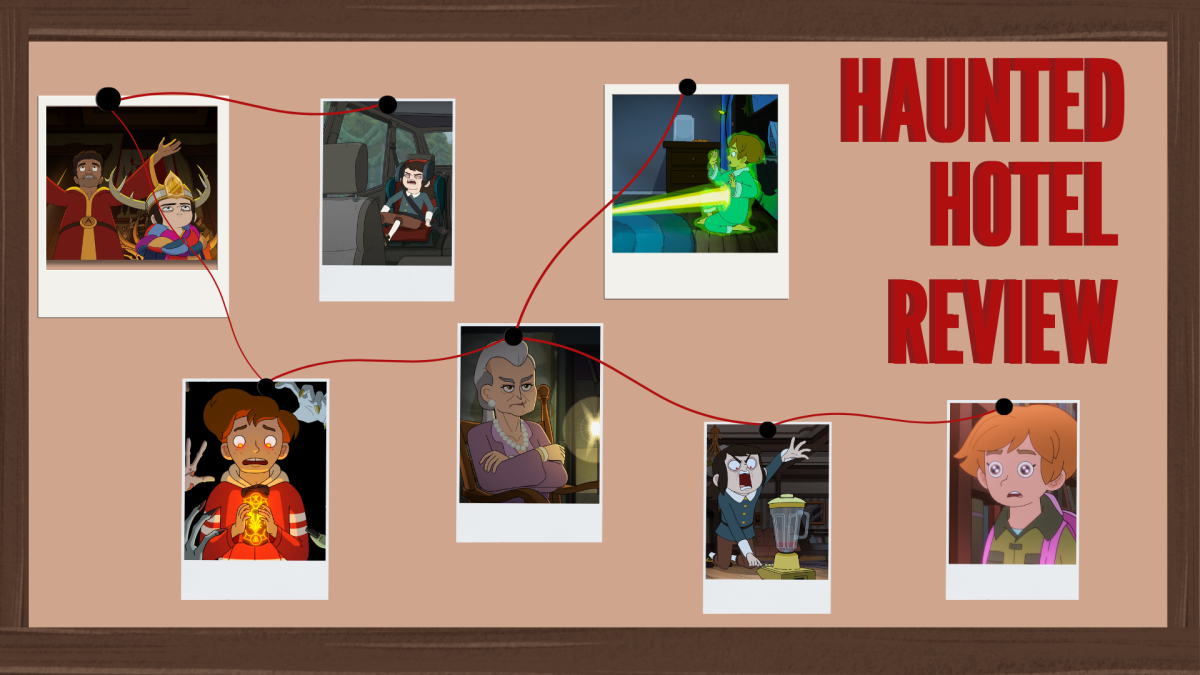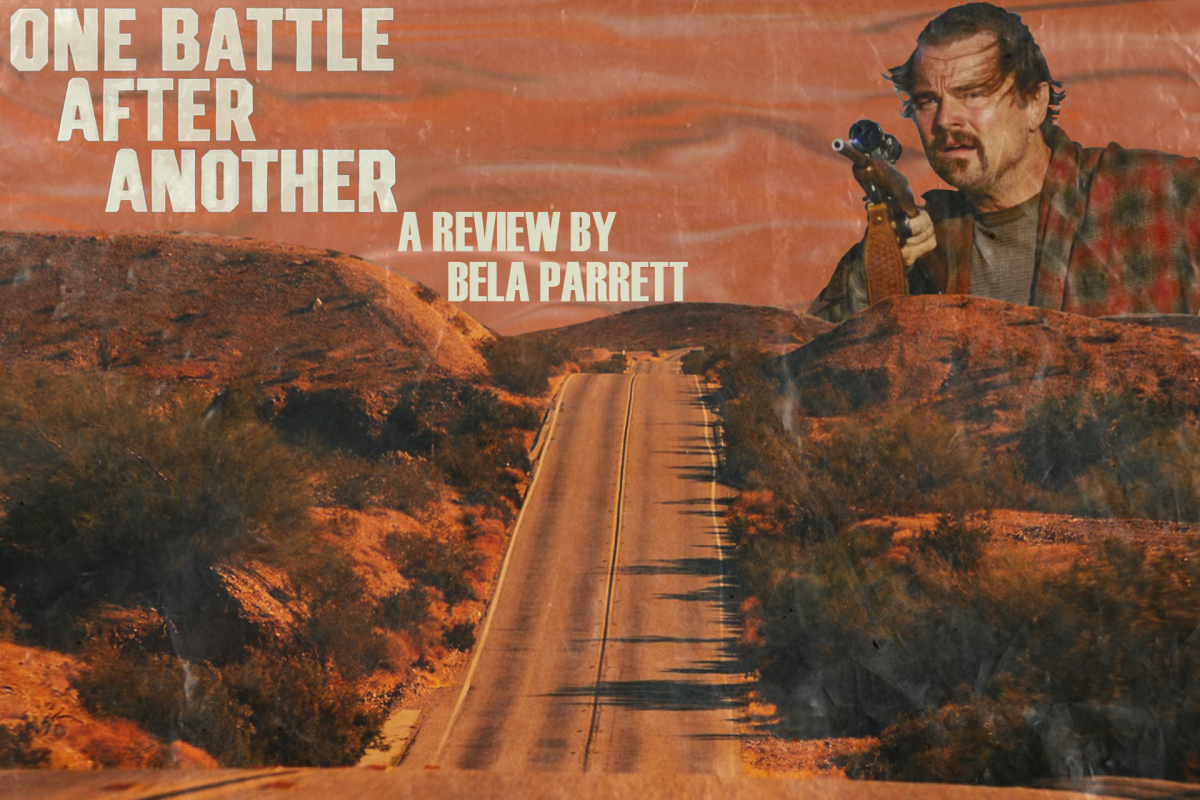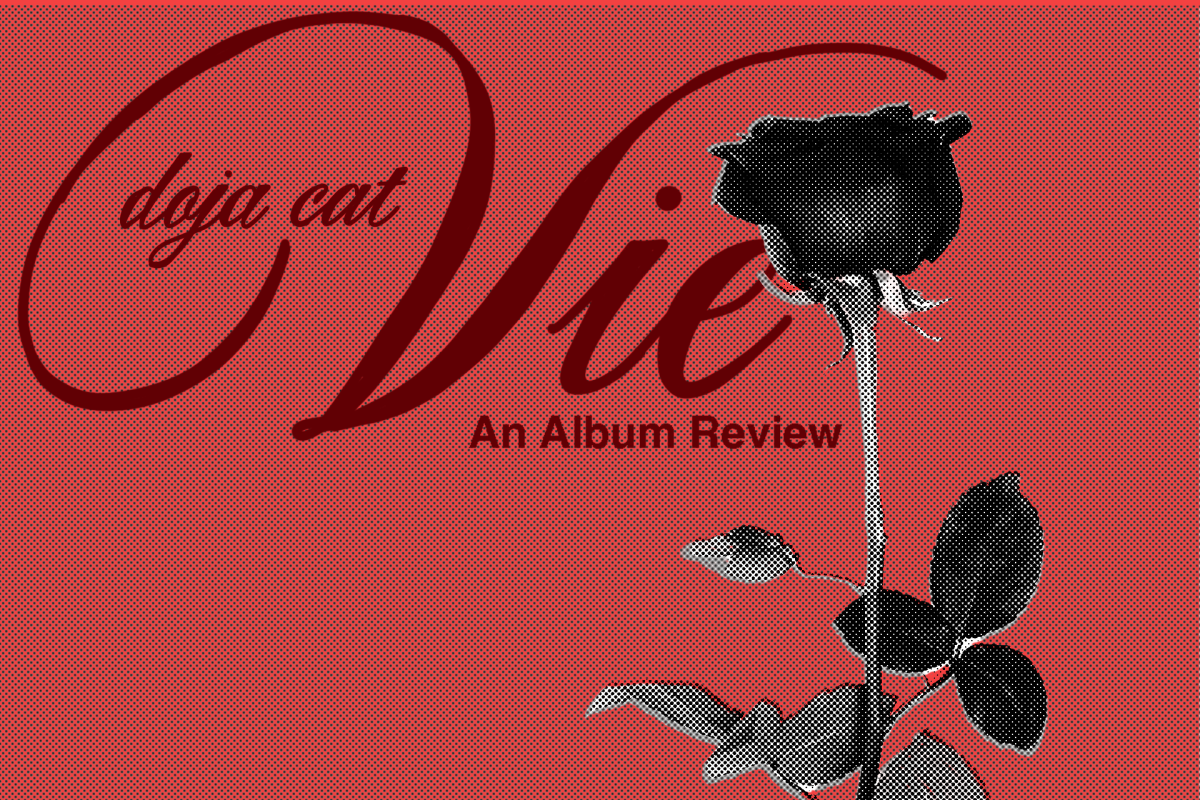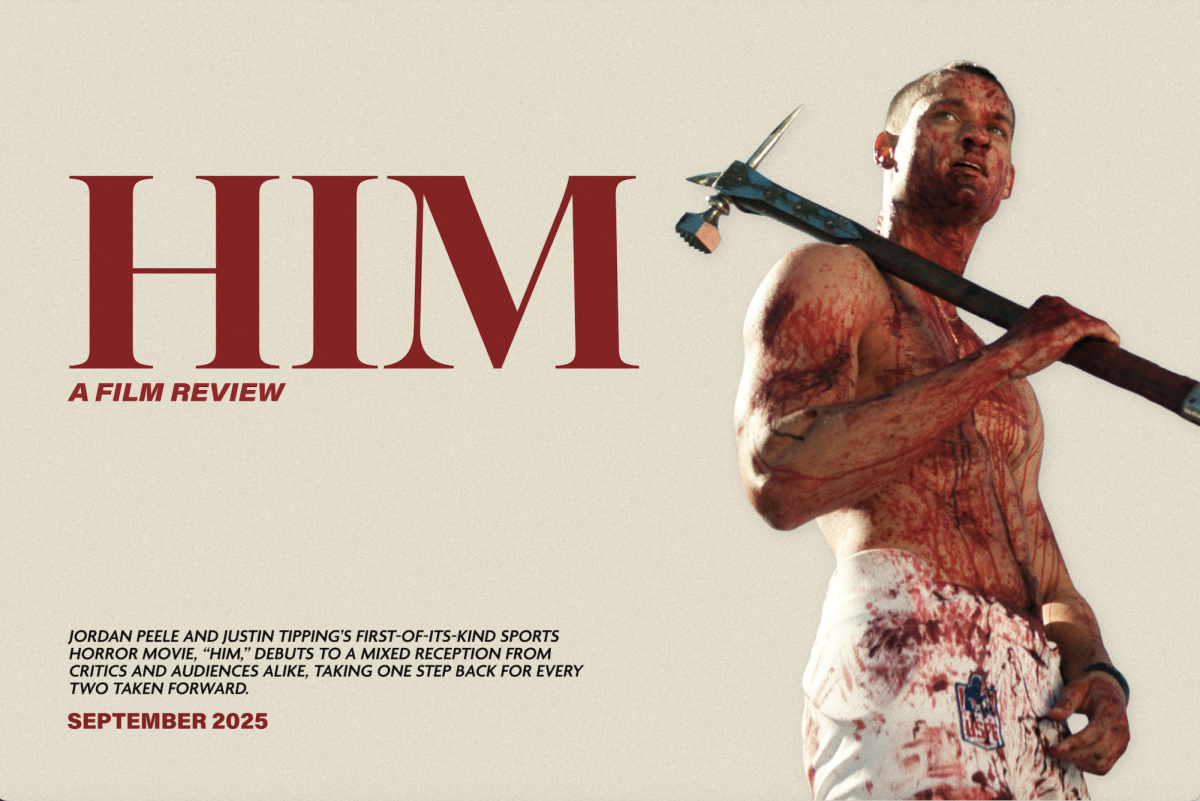In her directorial debut, Zoë Kravitz creates a tense thriller but misses the mark in her critique of power and control
“Blink Twice” attempts to create a thought-provoking commentary, but struggles to achieve any depth past gruesome sexual violence.
Zoë Kravitz, a self-proclaimed cinephile, made her directorial debut last month in a thriller that is both baffling and mesmerizing. “Blink Twice” was by far the most oddly captivating movie to come out so far this year. Its meticulously placed sounds pull you deeper into an unsettling world. Somewhere between the crackle of Slater King’s (Channing Tatum) vape to the flick of Jess’s (Alia Shawkat) lighter, you find yourself sucked into a disorienting yet somewhat hypnotic atmosphere. Every shadow and whisper feels charged with a hidden meaning you can’t quite figure out.
The film begins with a look into the main character Frida’s (Naomi Ackie) social media. You watch her fascination with powerful tech mogul King who is first seen in his apology video. While the initial offense is never made clear, King preaches that he has sought therapy and is now a philanthropist. It’s obvious Kravitz is mimicking the hollow remorse of today’s celebrities, and how their money and power allows them to dodge real consequences while maintaining a profitable persona.
After finishing their waitressing shifts, Frida and her best friend Jess sneak into one of King’s charity events. Frida then catches the attention of King and spends the rest of the night with him and his friends. Drawn in by his wealth and charisma, both women accept his last minute invitation to a secluded island getaway, expecting a dream vacation.
However, the island soon reveals itself as something far more sinister. As the weeks pass in a haze of luxury and indulgence, the atmosphere shifts from carefree to menacing. Days begin to blur together and serious concerns about home are dismissed as nothing to worry about. Frida, Jess and the other women on the island find themselves entangled in a world where power and privilege hide a disturbing truth.
This film lulls the audience into an unsettling rhythm through repeated noises — two shutters of a camera, two clicks of heels walking — that create a sense of tension. This deepened sense of paranoia and panic makes every moment feel both familiar and disturbingly off-kilter.
Kravitz uses this tension to explore themes of manipulation and control but as the story spirals into violence, the film struggles to fully engage with the complex issues it raises, leaving the audience feeling uneasy rather than resolved.
Throughout “Blink Twice” it is evident that Kravitz (as the director, writer and producer) wanted to convey a central theme; the overwhelming power of wealthy white men leaving women trapped in a cycle of never-ending abuse. However, her approach ultimately undermines her message. The movie resorts to extremely graphic depictions of sexual violence, which despite the trigger warning, are still very distressing. Though intending to shock the audience into recognizing King’s cruelty, this method feels unneeded and unearned. Even more so, the actual sexual assault is never fully addressed, rendering the entire purpose of the scene superficial and reducing a complex issue into a series of brutal and hard to watch moments.
Instead of deepening the conversation surrounding power dynamics and accountability, the film’s reliance on shock value distracts from its critique, presenting more of a spectacle than a substantive commentary.
“Blink Twice” is not an easy movie to watch due to the graphic visuals and unresolved discussions regarding sexual assault. However, if you are looking to watch something that will have you questioning what you just saw, this will leave you with an abundance of questions and not enough answers.
Edited by Ava McCluer | [email protected]
Copyedited by Maggie Atkinson and Hannah Taylor | [email protected]
Edited by Emily Skidmore | [email protected]


